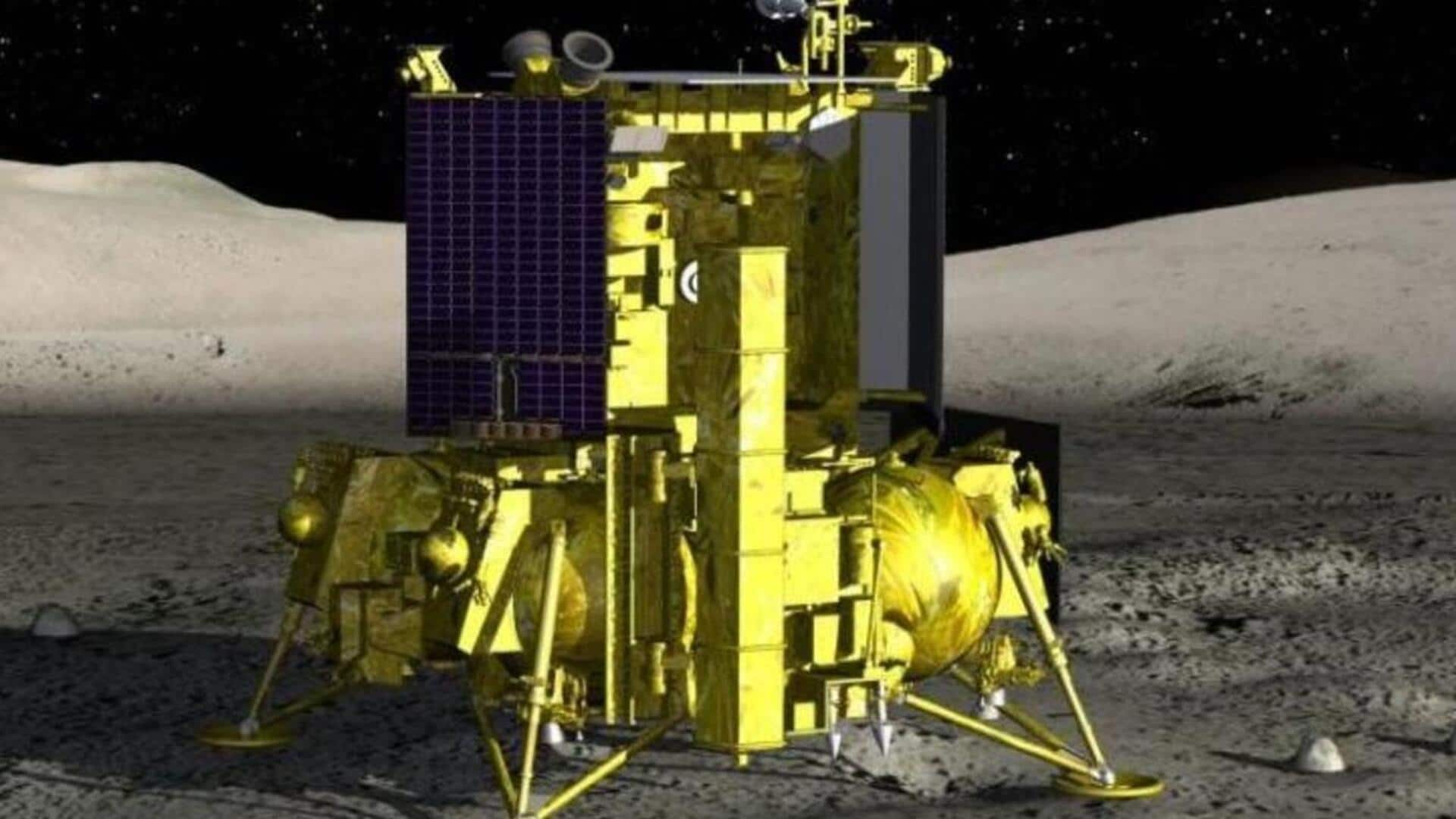
What went wrong with Russia's Luna-25 Moon mission
What's the story
Things did not go as planned with Luna-25, Russia's first lunar mission in nearly 50 years. The spacecraft crashed on the Moon on Sunday after an orbital maneuver went awry, per Roscosmos. The mission was designed to study the southern polar region for a year, where scientists have detected signs of frozen water in the craters. Had it been successful, the lander would have been the first mission to reach the Moon's south polar region, ahead of Chandrayaan-3.
Reason
The orbital maneuver sent the spacecraft on an "off-design" trajectory
"At about 14:57 Moscow time (on August 19), communication with the Luna-25 spacecraft was interrupted," Roscosmos said. "The measures taken on August 19 and 20 to search for the device and get into contact with it did not produce any results." "Due to the deviation of the actual parameters of the impulse from the calculated ones, the device switched to an off-design orbit and ceased to exist as a result of a collision with the lunar surface," said Roscosmos.
Details
Luna-25's failure is a setback to Russia's ambitious space programs
The failure of Luna-25 may impact Russia's future space plans. Roscosmos has more advanced missions lined up including the Luna-26 and Luna-27, which are expected to collect and return samples from the Moon. These missions will likely be delayed due to Luna-25's failure, as Roscosmos investigates the main cause behind the probe's crash. The subsequent launches of Luna-26, Luna-27, and beyond are now uncertain.
Upcoming missions
Chandrayaan-3 could become first to land near Moon's south pole
With Luna-25 out of the race, Chandrayaan-3 could become the first to land near the lunar south pole. Other countries are also planning lunar missions. China aims to send a crewed mission to the Moon by 2030. NASA has scheduled an Artemis mission for late 2025, which will land two astronauts near the lunar south pole. However, that mission could be delayed since the mission's landing system, built by SpaceX, is not ready as yet.
Team
Roscosmos is investigating the mission's failure
Roscosmos has designated a team to investigate the failure of the Luna-25 mission. Natan Eismont, from the Space Research Institute of the Russian Academy of Sciences, which led the scientific operations of Luna-25, told the New York Times that the spacecraft's engine had not performed as planned during the burns that were intended to alter the spacecraft's course. "Most likely the braking thrust was either too strong or it was in the wrong direction."